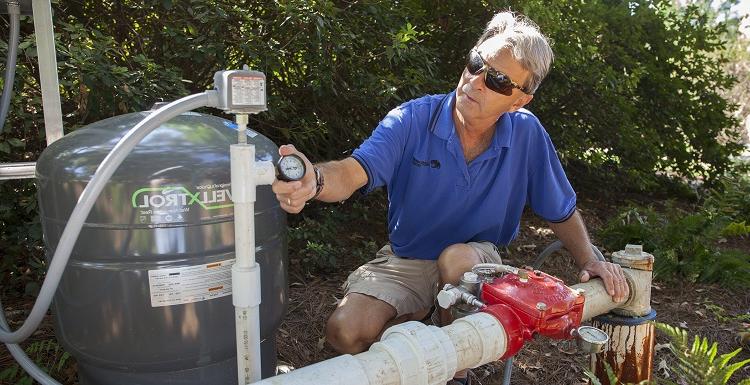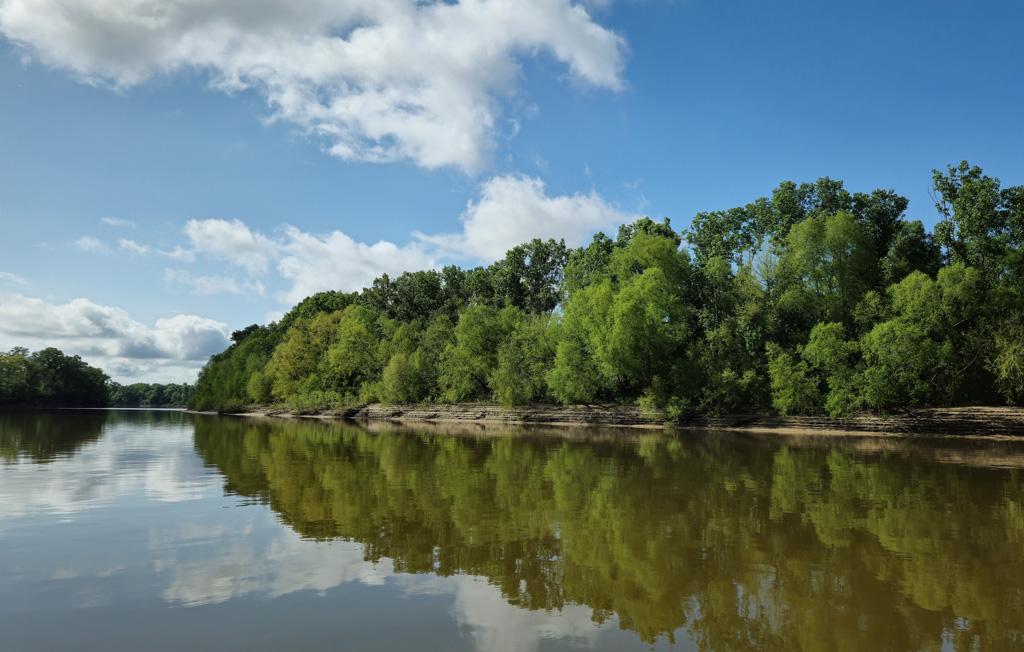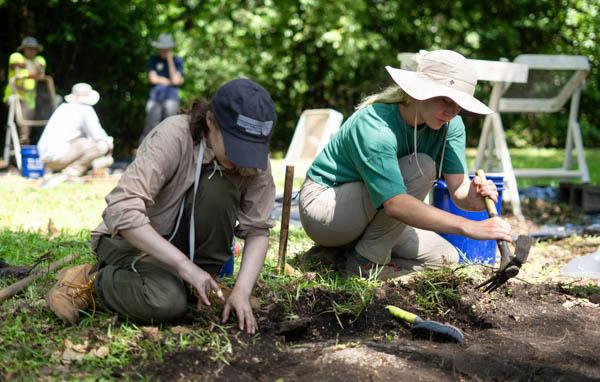大学越来越大,能源账单越来越小
发布于2015年12月29日

When Randy Moon first started figuring the savings that a more efficient campus energy 他很兴奋,也有点紧张.
“I told my boss a couple of years ago we might save as much as $350,000 a year,” said Moon, the University’s assistant vice president for facilities management. “我以为 I might be conservative, but I also thought that if I 是 wrong, this might be the 我的职业生涯结束.”
回想起来,月亮笑了,因为他 是 错了,但方式是对的. 每年节省的不是35万美元,而是成本 去年是73万美元. 在你期望的地方节省了一些能源 – for instance, replacing outdated equipment with energy-efficient machines – but he 也在不寻常的地方寻找储蓄. 比如威尔斯.
“The University had some wells on campus, but they were only being used for irrigation 目的,比如浇草浇花,”他说. 我纳闷,因为是沙土 that’s easy to drill through and abundant water below ground, that maybe we weren’t 充分利用我们的位置优势.”
So about a year ago, the University started drilling more wells. 他们找到了水, 而且很多. 文在寅的脑子里没有更绿的草.
“We needed a lot of water because we use water to generate the heating and cooling of our 建筑, and we were buying that water from the Mobile Area Water and Sewer 系统,”他说. “What we found 是 so much water that we didn’t have to buy nearly 同样来自MAWSS.” USA still buys domestic, or treated, water – used for drinking, 洗衣服,准备食物等. -从城市,而是每年的储蓄从 仅去年一年,使用井水的费用就超过13.5万美元.
从环境的角度来看,这也是一场胜利. “我们现在用的电更少了, 这样就减少了我们的碳足迹。. 而不是购买1.54亿美元 gallons of water annually from MAWSS, the city can redirect that resource elsewhere 在移动.”
学生, faculty and staff may have noticed some 建筑 are more comfortable this year because more of them are tied directly to the new equipment at USA’s central plant, rather than connected to their own, inefficient equipment outside their own 建筑. This is progress, but it does have some temporary side effects.
“We know that it’s an inconvenience to our students and employees whenever we have to dig up a street in order to upgrade the system, and we are very aware that folks occasionally have to detour from their usual routes,” he said.
As the University continues to grow in popularity, the demands for energy are increasing, 太. “We are a growing university,” 月亮说, “and we are also becoming more complex. Our lab 建筑, for instance, require 100 percent outside air makeup with no recirculated 空调. This requires substantially more energy than a standard classroom 建筑; therefore, there is a constant need to maintain and calibrate the 建筑 automation controls to conserve energy costs as much as possible.”
金融现实也不容忽视. 随着国家资金的继续 shrink relative to the size and scope of the University, dollars become even more 珍贵的. If hundreds of thousands of dollars in energy and water costs can be saved 每年,这是Moon说你想要做的投资.
“The investments we began making just a few years ago are already paying for themselves,” 月亮说. “I don’t think we’ll ever stop looking for ways to be more efficient, use less energy and spend less money, and if we can do that and reliably provide the University’s energy and water needs now and in the future, well, that’s something 感觉良好.”
归档文件的搜索
大学最新消息
-

跟上需求
The Stokes School of Marine and Environmental Sciences gets an $8 mill...
2024年6月7日 -

南方宣布首任捐赠院长
Dr. 迈克尔·卡佩拉是亚伯拉罕. 米切尔捐资给迪恩,第一个...
2024年6月7日 -

著名科学杂志发表了美国教授的论文
Three 南 professors' paper on major issues facing the Mobile-Tensaw...
2024年6月4日 -

只触及表面
An anthropology class gets a peek into the past during an archaeologic...
2024年5月31日


